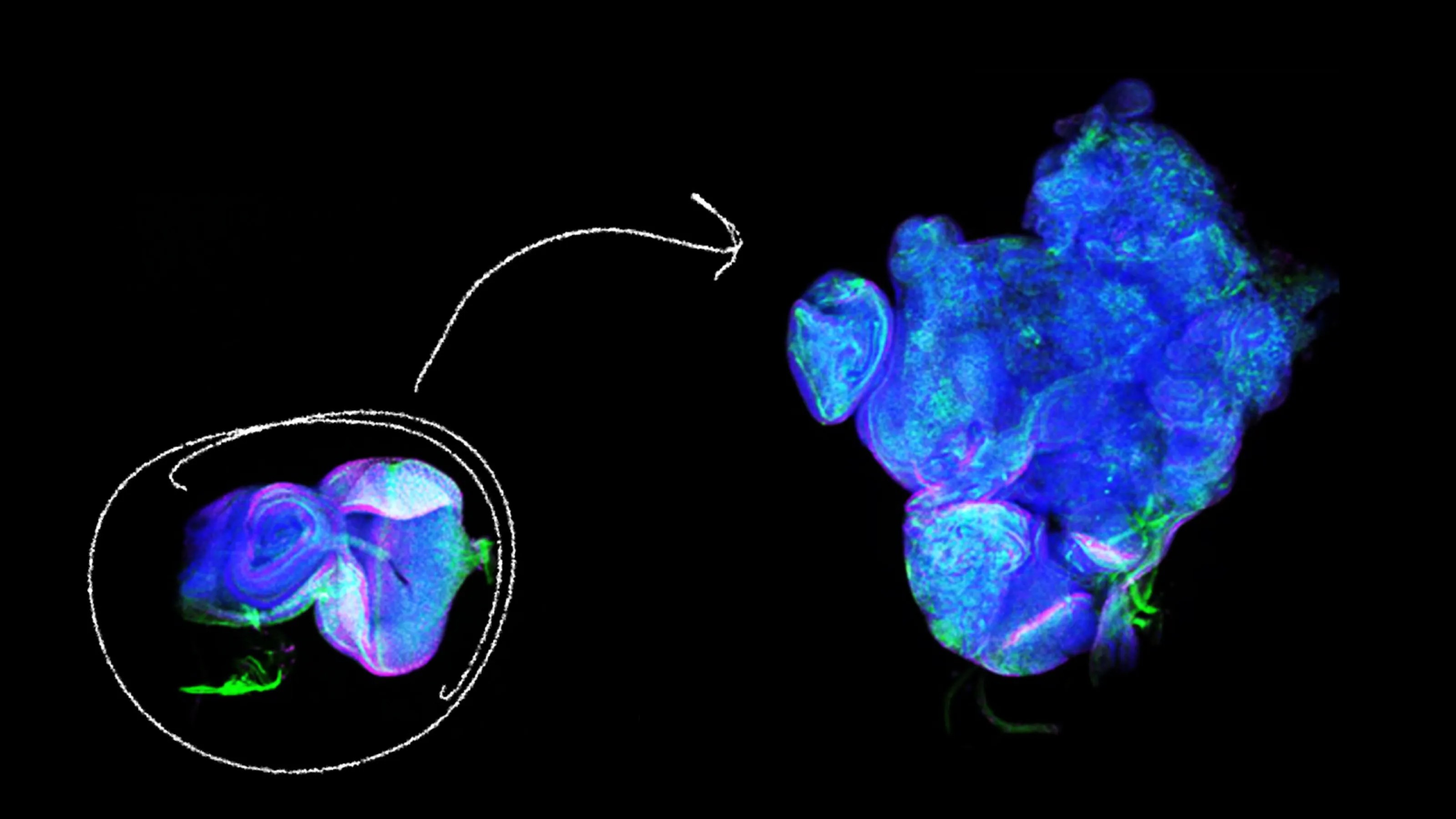Steven Hawking’s protege, Christophe Galfard, says there are only two events in the universe that defy the laws of physics: black holes and the Big Bang, and while scientists try to explain them both, black holes may be eating up crucial evidence that helps explains the Big Bang. Black holes, Galfard explains, may destroy matter that is gravitationally attracted to them such that scientists cannot use it to learn about the early the moments of the universe.
Comparing it to throwing an encyclopedia in a fire, Galfard is concerned that crucial information is being “burned” out of existence by black holes. If that were the only difficulty with understanding where our universe came from, many physicists could rest easier at night. But another fundamental problem, called the “information paradox,” confronts any attempt to know how our universe came to be. Simply put, the paradox says that gathering more information on a given topic doesn’t necessarily tell you how it came to be — they are two fundamental different events. So even if we had all the data currently being sucked into black holes, we might not be closer to understanding how the laws of physics emerged.
And that, says Galfard, is the ultimate goal of physicists the world over: to understand not just how the universe works, but why it works the way it does, and how it came into being. The much sough-after “theory of everything” would solve these problems and give us a complete understanding. But there is nothing so near a proof of any such theory — only the positing of events, like vibrating strings and multiple universes, says Galfard.
His book is The Universe in Your Hand: A Journey Through Space, Time, and Beyond.
Christophe Galfard: The interesting thing about trying to unravel the laws of nature is that yes, we have found some laws. We understand gravity to some extent. We understand the quantum world with some extent. But we don’t understand everything. We know that there are some laws missing, laws that we haven’t found yet. Now what theoretical physicists do is the following. They try to learn what we know so far and they try to see where the limits of today’s knowledge lie and they try to go beyond. They try to make one step beyond what is known. And that is what is called theoretical physics. Theoretical physics is trying to see a law beyond the laws we have. There are at least two places in our universe where we know that we do not know what laws apply. Those two places are inside black holes and at the Big Bang. In both cases the conditions surrounding everything are so extreme that the laws we know they break down. And that is why both these – that is one reason why both these places are so interesting to look at.
For a long time gravity has told us that nothing can escape the gravitational grip of a black hole. But then in 1976 or 75 Professor Stephen Hawking discovered that it was not the case. That actually things could escape black holes. How did that come about? Picture yourself in outer space. There is a black hole right in front of you. You don’t see anything. No light can come out of it. So it’s like a dark patch that distorts the stars that are around. But there is this dark patch right in front of you and you’re far away and you look at it and it’s scary and you don’t want to get closer which is normal. But – and respectable. But what you know is that gravity is not everything. The matter that surrounds you, the light that surrounds you obeys a different kind of law. They obey quantum physics. They obey the law of the quantum world.
And everything we had known about black holes until the mid-1970s was only related to gravity. Now what Hawking did at the mid-1970s is to add some quantum aspects to all this. He took a quantum particle and threw it in his mind towards the black hole to see what would happen to it. And he found out that some part of that particle was getting out of the black hole. That the black hole was evaporating. It was not the exact same particle he had sent inside and that was, that’s what’s tricky about this problem and that’s what’s interesting about this problem. He realized which is something that became known as the black hole information paradox. In a way that means that the information gets bleached by a black hole. Why is that? You could imagine that it’s the same with an encyclopedia that you would throw in the fire. You take an encyclopedia, you throw it in the fire, it’s gone. Well not quite. If you could get back the ashes, if you could collect all the lights that was shown during the fire. If you could get the heats and everything you could build back the encyclopedia.
It’s not gone. It’s just difficult to retrieve. For a black hole it’s worse. If you throw an encyclopedia inside what the black hole will evaporate has nothing to do with the encyclopedia whatsoever. You could have thrown in something else. So why is that a problem? It is a problem because it means that our universe has memory losses. It means that whatever a black hole has swallowed would get inside, never get back out and we would never be able to understand the past of our universe. There’s some things that are not retrievable at all. Not just in practice but also in theory. And as it evaporates the black hole eventually disappears completely maybe. And if it’s gone where did the information go about the encyclopedia. Where did it go? We don’t know. And that’s a problem because that’s called non-unitarity. That’s the technical term for it and it means that you do not, you cannot use physics to understand the history of what happened before. In a sense the information paradox says that physics is not going to give you the history of our universe. And you can fairly easily understand that scientists did not like that idea.
And people are still working today on the way out of that problem. There are some solutions that have been put forward. None that I believe is sufficiently convincing mathematically to be considered a proof but people have been working on that information lost paradox problem since 1975-1976. And in a sense maybe the answer to that question will come from this theory of everything that everybody is looking for.






